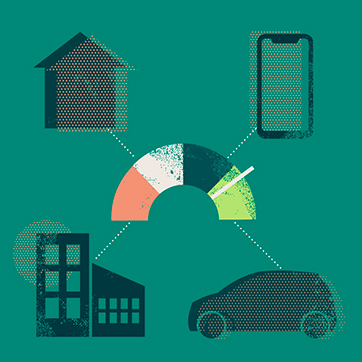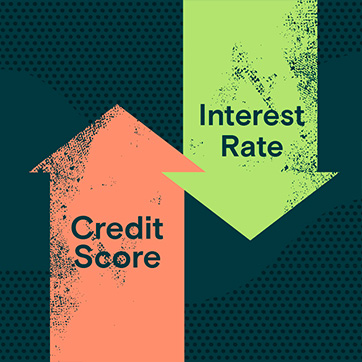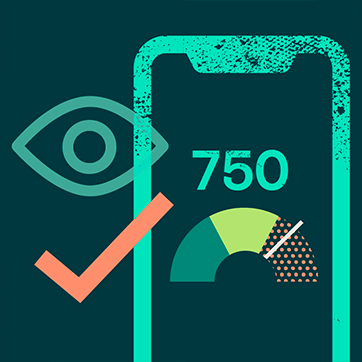How Credit Influences Your Ability to Get a Loan
May 2, 2022 • 5 minute read

More than ever, having good credit is key to achieving your personal and financial goals. Whether you’re in the market for a home, a car, a business loan or even a cell phone plan, your credit score has a big influence on whether a loan is approved or how much interest you’ll pay.
In order to judge whether you’re a good or bad risk, potential lenders will first look at your credit score. This will inform their decision by telling them whether you’re likely to pay back a loan on time.
That means it’s important to maintain good spending habits, especially where borrowing money is concerned. Making credit card payments on time, keeping your balance well below your spending limit and holding onto cards as long as possible all go a long way toward a higher rating.

While it’s true you don’t need flawless credit to get a mortgage or car loan, the higher your credit score — over 640 is considered good, and above 770 is exceptional — the better terms you’ll receive. And how much interest you pay can have a significant effect on your budget.
Let’s say you’re looking to buy a new car with the goal of taking out a $20,000, 60-month loan, and a 550 credit score qualifies you for an 11.92% interest rate. Meanwhile, your friend’s score of 760 gets her the same loan at a rate of 4.68%. That could leave you paying $443 per month versus your friend’s $373 payment — or $6,580 in total interest versus $2,380 over the loan’s five-year term. It definitely adds up!

That’s why it’s always a good idea to regularly check your credit history and see where you rank in the eyes of potential lenders. If it turns out you’re in a lower bracket than you’d like or can afford, it may be a good idea to hit pause before making that big purchase so you can take time to repair your credit as much as possible. Since credit scores are mostly determined by your amount of debt and whether you pay your bills on time, focus on these areas first.
If it’s important to buy that house or car right now, consider finding a co-signer with a higher credit score to help you get approved or find a better interest rate.
A low credit score doesn’t mean you’ll never be able to have your own car or home. But knowing how that score can affect the cost of a large purchase — and how to make your credit the best it can be — will give you the power to keep more money in your pocket.
